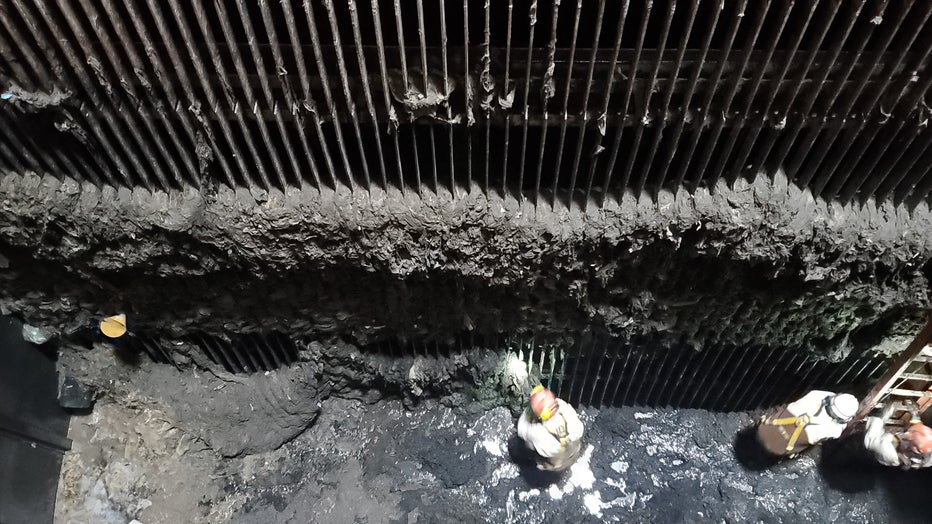Macomb and Oakland's sewers are getting increasingly clogged with disposable wipes
People's use of disposable wipes has increased during the pandemic, and that's creating a mess for Macomb and Oakland County's sewer systems.

The overall effort including the cleaning of the wet well took more than six weeks at an estimated cost of $450,000 (Courtesy of Macomb County Public Works)
Disposable wipes ending up in sewer pipes and pump stations have continually been a problem for the Metro Detroit area, with trash accumulating to the point that expensive removals of debris.
But the debris piling up is getting larger and the removals are getting more expensive, Macomb County's public works commissioner said.
In 2018, approximately 70 tons of debris that had accumulated over three years was removed from a pump station in Detroit. Three years later, a crew removed 270 tons of debris.
"That's a huge - and troubling - increase," said Candice Miller.
We are seeing an uptick of issues specifically at the Oakland-Macomb Interceptor sewer system and pumping station," said Jim Nash, the Oakland County water resources commissioner said. "It is taking crews longer than expected to clean the systems due to the build-up of ‘flushable’ wipes."
Many may remember the Macomb County "Fatberg" that was removed in 2018. It got so famous it was put on display at the Michigan Science Center - both as an exhibit in sewage system maintenance and a monument to the improper trash disposal people use in the area.

Globs of disposable wipes and other debris raked from higher sections of the giant bar screen at the Northeast Sewage Pumping Station. (Macomb County Public Works)
It cost the county $100,000 to remove the fatberg and another mass of wipes in 2018. The price tag for one of the recent cleanups was more than four times that - about $450,000.
In a statement released from both counties Thursday, the massive pileup is due to more people working and attending school from home. Approximately 1,000 pounds of wipes were flushed down toilets every week at a Clinton Township pumping station before the pandemic.
But after the stay-home order came, the average number of pounds of wipes increased to 4,000 a week.
RELATED: 'Fatberg' measuring 100 feet long, 11 feet wide found in metro Detroit sewer line
The Great Lakes Water Authority, which manages much of the drainage and water infrastructure in Metro Detroit created an award-winning video that explains the effects that wipes have on the sewer system. You can watch it below.

